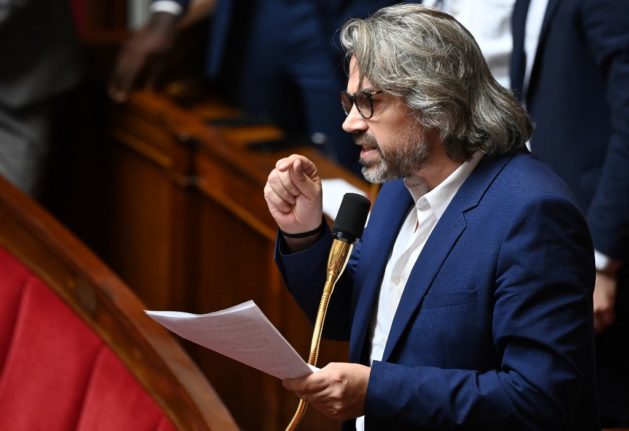The 577-seat National Assembly had looked set to vote on draft legislation that would have made the practice illegal.
But the MP behind the bill withdrew it after lawmakers filed more than 500 amendments, many of them designed to take up parliamentary time and obstruct the vote.
“I’m so sorry,” Aymeric Caron, a La France insoumise (LFI) MP and animal rights’ campaigner, told the national assembly as he announced the decision in raucous and bad-tempered scenes.
Though public opinion is firmly in favour of outlawing the practice, the bill had already been expected to be rejected by a majority of lawmakers who
are wary about stirring up the bullfighting heartlands in the south of the country.
“We need to go towards a conciliation, an exchange,” President Emmanuel Macron said on Wednesday, adding that he did not expect the draft law to pass. “From where I am sitting, this is not a current priority.”
His government has urged members of the ruling centrist coalition not to support the text from the opposition LFI, even though many members are known to personally favour it.
During a first debate of the parliament’s law commission last week, a majority voted against the proposal by Caron, who denounced the “barbarism” of a tradition that was imported from Spain in the 1850s.
“Caron has antagonised people instead of trying to smooth it over,” a lawmaker from Macron’s party told AFP on condition of anonymity.
The bill proposed modifying an existing law penalising animal cruelty to remove exemptions for bullfights that can be shown to be “uninterrupted local
traditions”.
These are granted in towns such as Bayonne and Mont-de-Marsan in south west France and along the Mediterranean coast including Arles, Beziers and Nîmes.
Around 1,000 bulls are killed each year in France, according to the Observatoire National des Cultures Taurines.
READ ALSO EXPLAINED: Could bullfighting finally be banned in France?
Many so-called “bull towns” depend on the shows for tourism and see the culture of bull-breeding and the spectacle of the fight as part of their way of life – idolised by artists from Ernest Hemingway to Pablo Picasso.
They organised demonstrations last Saturday, while animal rights protesters gathered in Paris – highlighting the north-south and rural-versus-Paris divide at the heart of the debate.
“Caron, in a very moralising tone, wants to explain to us, from Paris, what is good or bad in the south,” the mayor of Mont-de-Marsan, Charles Dayot, told AFP recently.
Other defenders of “la Corrida” in France view the focus on the sport as hypocritical when factory farms and industrial slaughter houses are overlooked.
“These animals die too and we don’t talk enough about it,” said Dalia Navarro, who formed the pro-bullfighting group Les Andalouses in southern Arles.
Modern society “has more and more difficulty in accepting seeing death. But la Corrida tackles death, which is often a taboo subject,” she told AFP.
Previous judicial attempts to outlaw bullfighting have repeatedly failed, with courts routinely rejecting lawsuits lodged by animal rights activists, most recently in July 2021 in Nîmes.
The debate in France about the ethics of killing animals for entertainment is echoed in other countries with bullfighting histories, including Spain and Portugal as well as Mexico, Colombia and Venezuela.
In June, a judge in Mexico City ordered an indefinite suspension of bullfighting in the capital’s historic bullring, the largest in the world.
The first bullfight took place in France in 1853 in Bayonne to honour Eugenie de Montijo, the Spanish wife of Napoleon III.



 Please whitelist us to continue reading.
Please whitelist us to continue reading.
It’s extraordinary that a 21st century Western society can approve the public torture and eventual killing of another animal for ‘entertainment’. The fact that ‘celebrities’ as Picaso and Hemingway thought it was laudable merely indicates their talents and insights were confined only to painting and writing.
Charles Dayot’s claim that it’s a cultural difference in central administration is missing the point. Intellectually it’s shameful. Dalia Navarro is equally blind. Slaughtered animals for food is entirely different from killing for pleasure. Perhaps she should install public galleries in slaughter houses for those who find death of others entertaining.